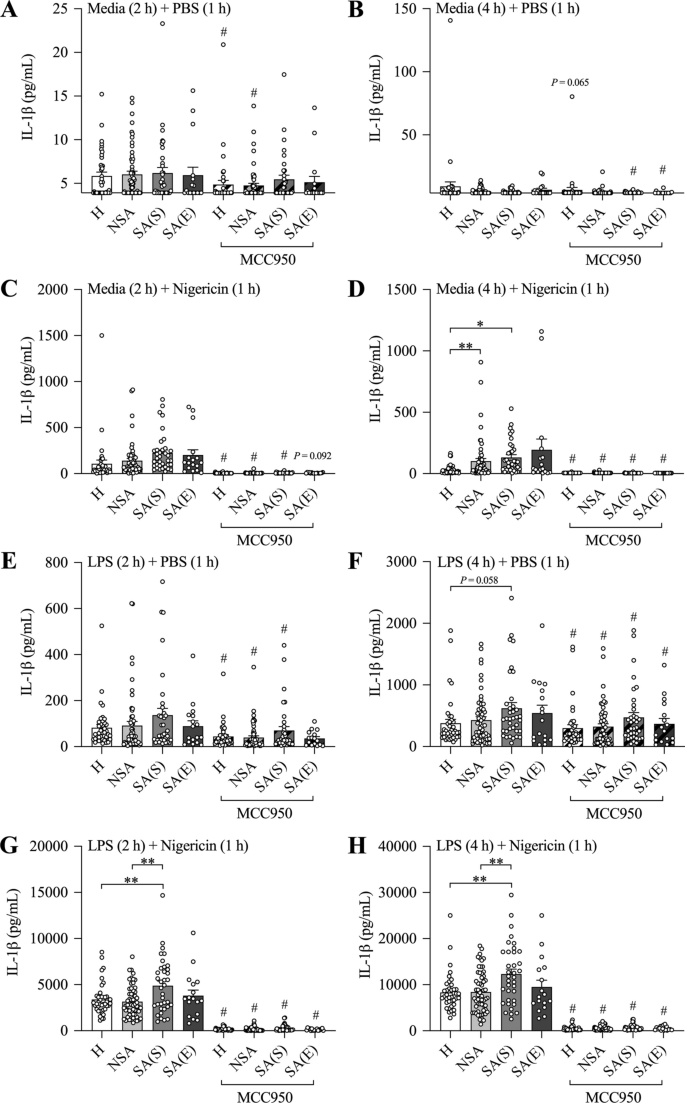Horvat, J.C., Kim, R.Y., Weaver, N. et al. Respir Res 24, 303 (2023). https://doi.org/10.1186/s12931-023-02603-2
Abstract
Background
Increased airway NLRP3 inflammasome-mediated IL-1β responses may underpin severe neutrophilic asthma. However, whether increased inflammasome activation is unique to severe asthma, is a common feature of immune cells in all inflammatory types of severe asthma, and whether inflammasome activation can be therapeutically targeted in patients, remains unknown.
Objective
To investigate the activation and inhibition of inflammasome-mediated IL-1β responses in immune cells from patients with asthma.
Methods
Peripheral blood mononuclear cells (PBMCs) were isolated from patients with non-severe (n = 59) and severe (n = 36 stable, n = 17 exacerbating) asthma and healthy subjects (n = 39). PBMCs were stimulated with nigericin or lipopolysaccharide (LPS) alone, or in combination (LPS + nigericin), with or without the NLRP3 inhibitor MCC950, and the effects on IL-1β release were assessed.
Results

PBMCs from patients with non-severe or severe asthma produced more IL-1β in response to nigericin than those from healthy subjects. PBMCs from patients with severe asthma released more IL-1β in response to LPS + nigericin than those from non-severe asthma. Inflammasome-induced IL-1β release from PBMCs from patients with severe asthma was not increased during exacerbation compared to when stable. Inflammasome-induced IL-1β release was not different between male and female, or obese and non-obese patients and correlated with eosinophil and neutrophil numbers in the airways. MCC950 effectively suppressed LPS-, nigericin-, and LPS + nigericin-induced IL-1β release from PBMCs from all groups.
Conclusion
An increased ability for inflammasome priming and/or activation is a common feature of systemic immune cells in both severe and non-severe asthma, highlighting inflammasome inhibition as a universal therapy for different subtypes of disease.
Key messages
- We show systemic immune cells from patients with severe and non-severe asthma have increased sensitivity to NLRP3 inflammasome activation and IL-1β release, with responses correlating with neutrophilic and eosinophilic inflammation.
- Increased inflammasome-mediated IL-1β release in systemic immune cells is similar in male versus female, and obese versus non-obese, patients, and can be readily suppressed using NLRP3 inflammasome-specific inhibitors, highlighting increased inflammasome responses as a potential therapeutic target.
